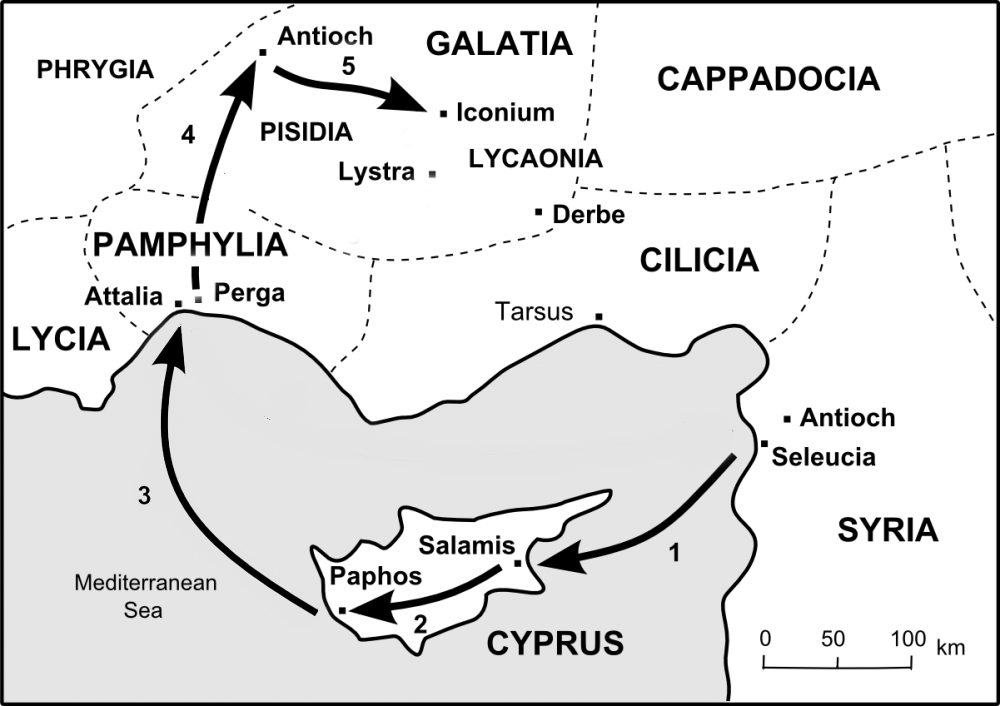By Tyson Thorne
![]()
After being chased from the city of Antioch in Pisidia, Paul and Barnabas fled to Iconium and followed their pattern of first visiting the Jewish synagogue of the city. There they met with similar results as in Pisidian Antioch, with one important difference.
As in Jerusalem and Antioch they took the message of Jesus to the synagogue first. Jesus is, after all , the Messiah promised to Israel. In both instances, there are a number of people who follow, and a number of people who do not, and a group of spiritual and political leaders who oppose the apostles’ teaching. Nothing was different in Iconium except that in this case, rather than letting each person make up their own mind and go wherever it leads, the non-believing Jewish community decided to “poison the minds” of the God-fearers. Just what the nature of this poisoning was is unclear. Whatever form the poison took, Barnabas and Paul decided it was important enough to stay in the city and combat it.
There are only two reasons to stay on in Iconium when they had been met with such resistance. The first is a lie or misrepresentation of the apostles themselves. It may be that someone in Iconium knew of Paul’s reputation and history, and tried to make him out as an unstable person, a spiritual flip-flopper of sorts. By staying on they could take the time to show the people of the city that what had been said about them wasn’t true. This would explain why the signs and wonders they performed were so important – they needed to prove they were God’s messengers.
The other reason is false teaching about God and particularly Jesus. Possibly the “poisoning” took the form of heresy being introduced to the gospel. It could have been an injection of Jewish law as a requisite for salvation, or it could have been integrating teachings from the Gnostics. Either way, such a spiritual error would not have gone unchecked by the apostles, causing them to stay on and continue to proclaim the pure gospel message.
Later in his life Paul writes to a protégé of his and briefly discusses the persecution he underwent in Antioch, Iconium and Lystra. In this context (2 Timothy 3.10-.17) he specifically mentions “evil people” and “charlatans” who, being deceived themselves, then deceive others. Whether that deception was about Paul or about Jesus is still unclear however. In the context Paul writes it first appears the deception is about a Biblical matter, for he instructs Timothy to “continue in the things you have learned”. Yet the very next sentence Paul makes the point that Timothy may trust what he has learned because he knows the man he learned it from (Paul himself) is trustworthy.
There is one more noteworthy observation to be made in this passage. The construction of verse three indicates that God himself is the one testifying to the message of the apostles, and this testimony came in the form of granting signs and wonders. Once more we see that the apostles themselves had no power of their own, but what they needed God provided. This is in contrast to the two magicians we have met in the last few chapters, who wished to demonstrate to others that they had powers of their own.
Whatever the explanation for their staying on in Iconium may be, they decided to leave once their lives were threatened. Learning of a conspiracy to murder them, they pressed on to the city of Lystra not realizing they were being followed by treacherous men and that the trouble they had in Iconium was only the beginning.
|
|
|
